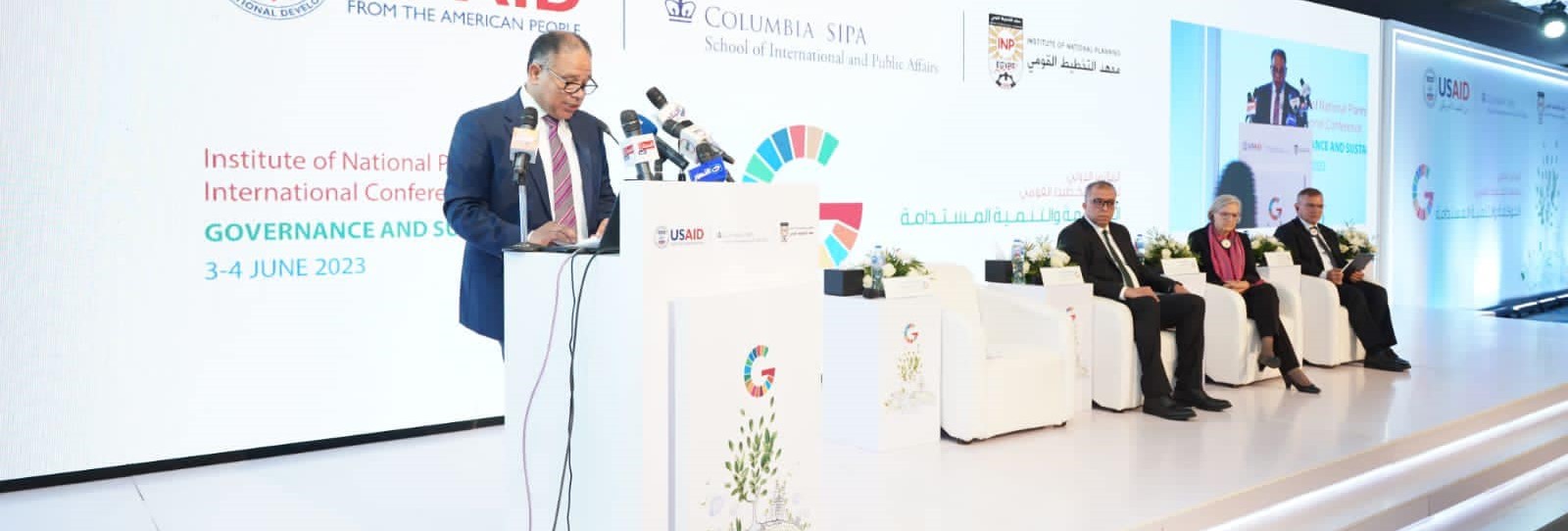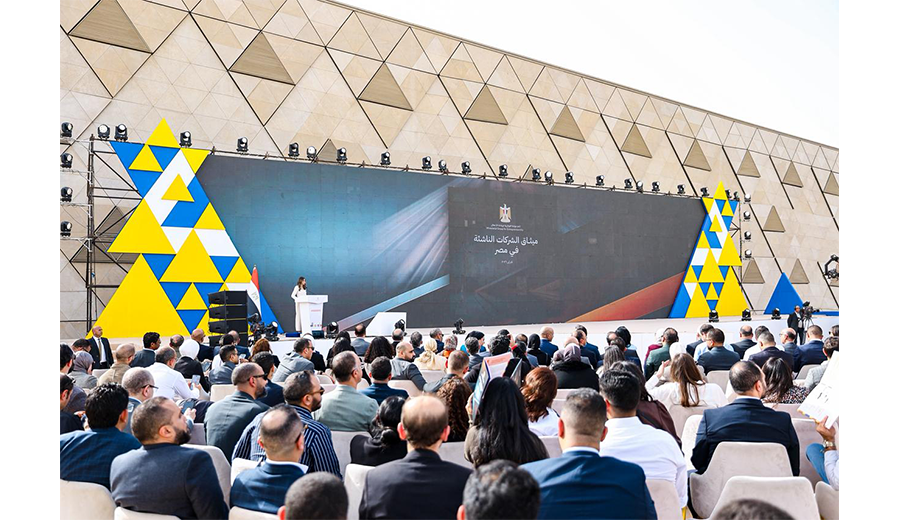State Ownership Policy Document Aims to Increase Domestic and Foreign Investments: Minister of Planning

03 June 2023
The Minister of Planning and Economic Development who is acting also as chairperson of the Institute-of-National-Planning (INP), H.E. Dr. Hala El-Said announced that the Egyptian State has come a long way in reforms and serious efforts that it started eight years ago intending to achieve comprehensive and sustainable development, through the launch of "Egypt's Vision 2030" in February 2016 and its recent update in line with developments in the international and local environment.
This came as part of the speech that the Director of the Center for Macroeconomic Policies at the Institute of National Planning (INP), Dr. Khaled Zakareya delivered on behalf of Dr. Hala El-Said, during the annual meeting of the INP which is addressing this year “Governance and Sustainability” in cooperation with the Economic Governance project financed by the US Agency for International Development (USAID), and the College of International and Public Affairs at Columbia SIPA.
The meeting witnessed the presence of INP Head Dr. Ashraf El-Araby, Deputy Minister of Planning and Economic Development Dr. Ahmed Kamali, Executive Director of the National Institute for Governance and Sustainable Development (NIGSD) Dr. Sherifa Sherif, and Head of the Regional Planning Sector at the Ministry of Planning and Director of the Planning and Industrial Development Center at the National Planning Institute Dr. Heba Mogheeb.
Through the speech delivered on her behalf, El-Said indicated that Egypt has implemented the first phase of the national economic and social reform program since November 2016.
This included several institutional and legislative reforms and incentive measures to create a business environment.
She further added that the state continues these reforms by moving forward with the implementation of the national structural reform program.
The program aims to transform the Egyptian economy to become a productive, knowledge-based economy with competitive capabilities in the global economy, encourage inclusive growth, create decent and productive job opportunities, and diversify and develop production patterns.
Moreover, El-Said added that to implement this reform, the state adopted in October 2022 the State Ownership Policy Document which explains to investors the role of the state in various sectors as a regulator of economic activity according to market mechanisms, and how the state can exit from activities in which the private sector will assume the largest role.
El-Said pointed out that the Egyptian state has implemented its serious approach towards transforming toward a green economy and preserving the sustainable use of natural resources, so the state adopts environmental sustainability standards that aim for environmental projects to represent 40% of the state’s investment plan for the fiscal year 2022/23 and 50% of the 2024/25 plan.
She also addressed the implementation of the second round of the National Initiative for Green Smart Projects in Governorates in the governorates of the Republic. This contributes to enhancing the interaction of governorates and localities with ecological issues in the development.
El-Said referred to the Decent Life Initiative, which was praised by international organizations, as it was registered on the UN Goals Accelerators platform in July 2020 and on the International Best Practices platform in July 2021, both by the United Nations Department of Economic and Social Affairs (UNDESA).
El-Said also highlighted the NIGSD projects and the local service development projects. These include the development of state offices in all governorates, technological centers in neighborhoods and cities, and new urban communities.
El-Said illustrated the state’s continuous execution of many institutional development projects to increase the efficiency of the different institutions as the Ministry of Planning and Economic Development launched the “Egypt Government Excellence Awards” for the third consecutive year (2019, 2021, 2022), under the patronage of H.E. Abdel Fattah El-Sisi, Egypt’s President.
El-Said added that despite the grave challenges facing Egypt and the world, the fruits of the development efforts and initiatives implemented by the state in recent years were manifested in several positive indicators, including achieving a growth rate that exceeded 5% in some years and even reached 6.6% in FY 2021/22, the highest growth rate since 2008.
Finally, El-Said specified that Egypt’s ranking has risen according to the Global Human Development Report, as Egypt jumped 19 ranks (from 116th in last year’s report to 97th for the year 2021/22), thus maintaining Egypt’s classification within the group of countries with high human development, due to Egypt’s high ranking in the sub-indicators related to an adequate standard of living, economic growth, and decent work.









